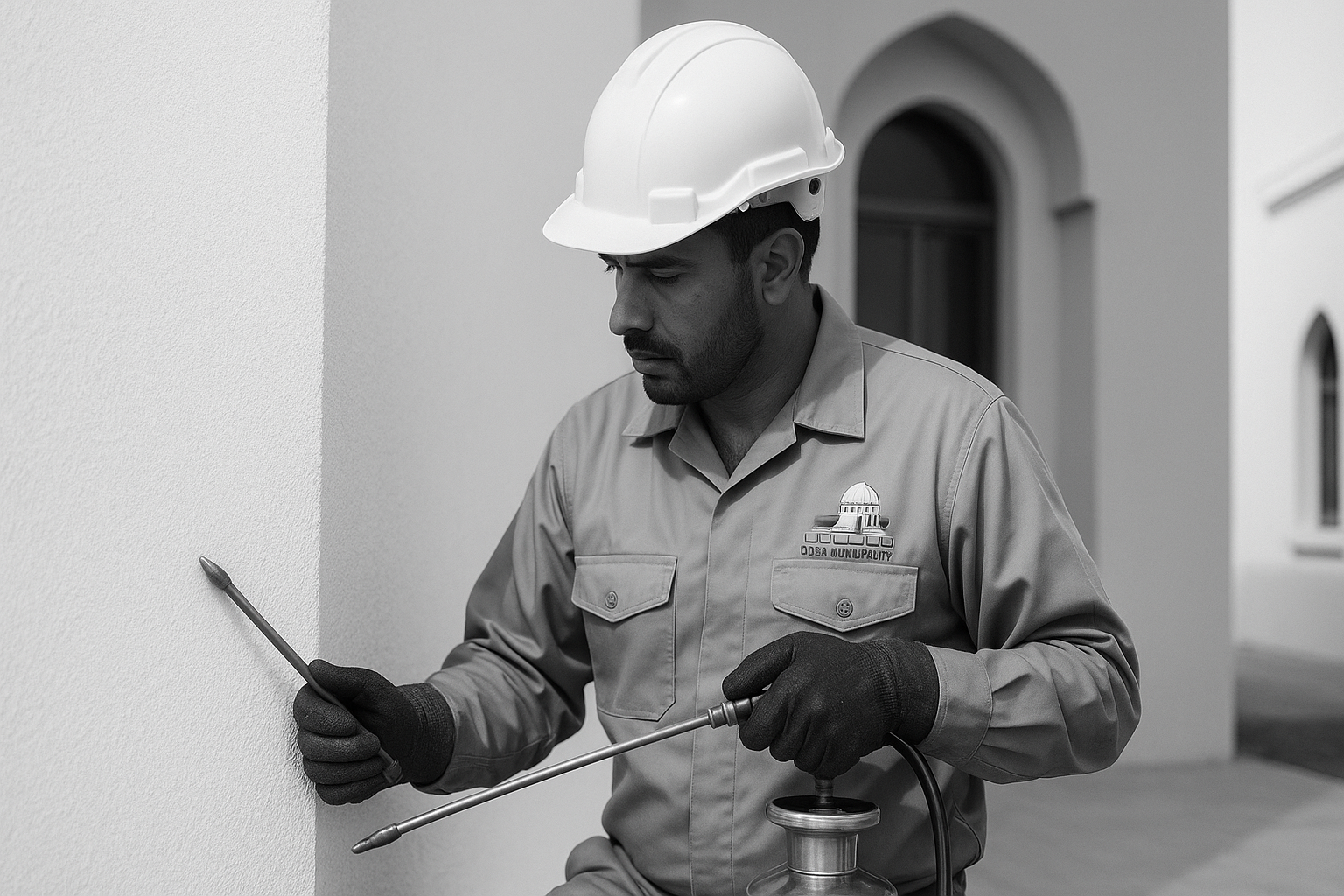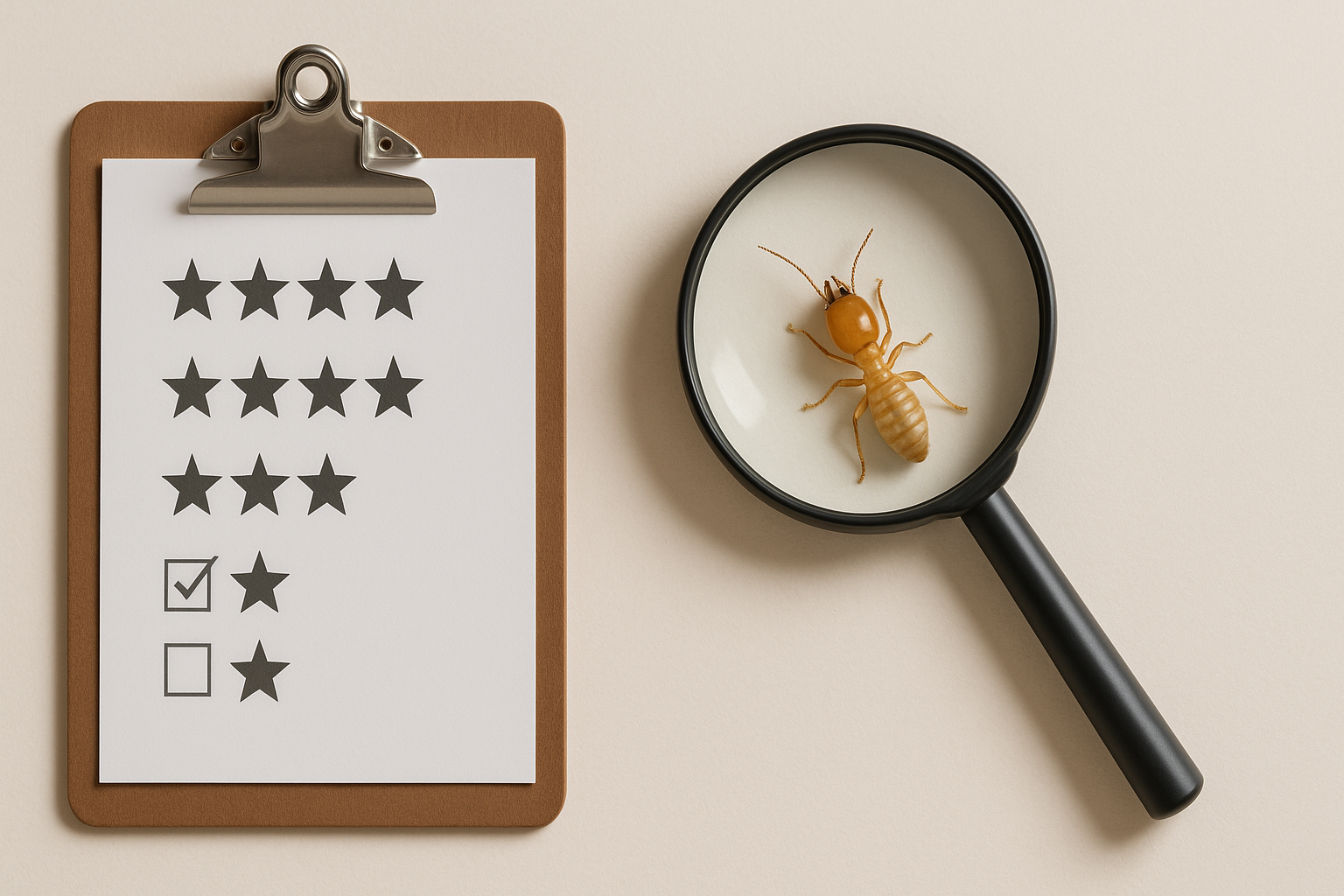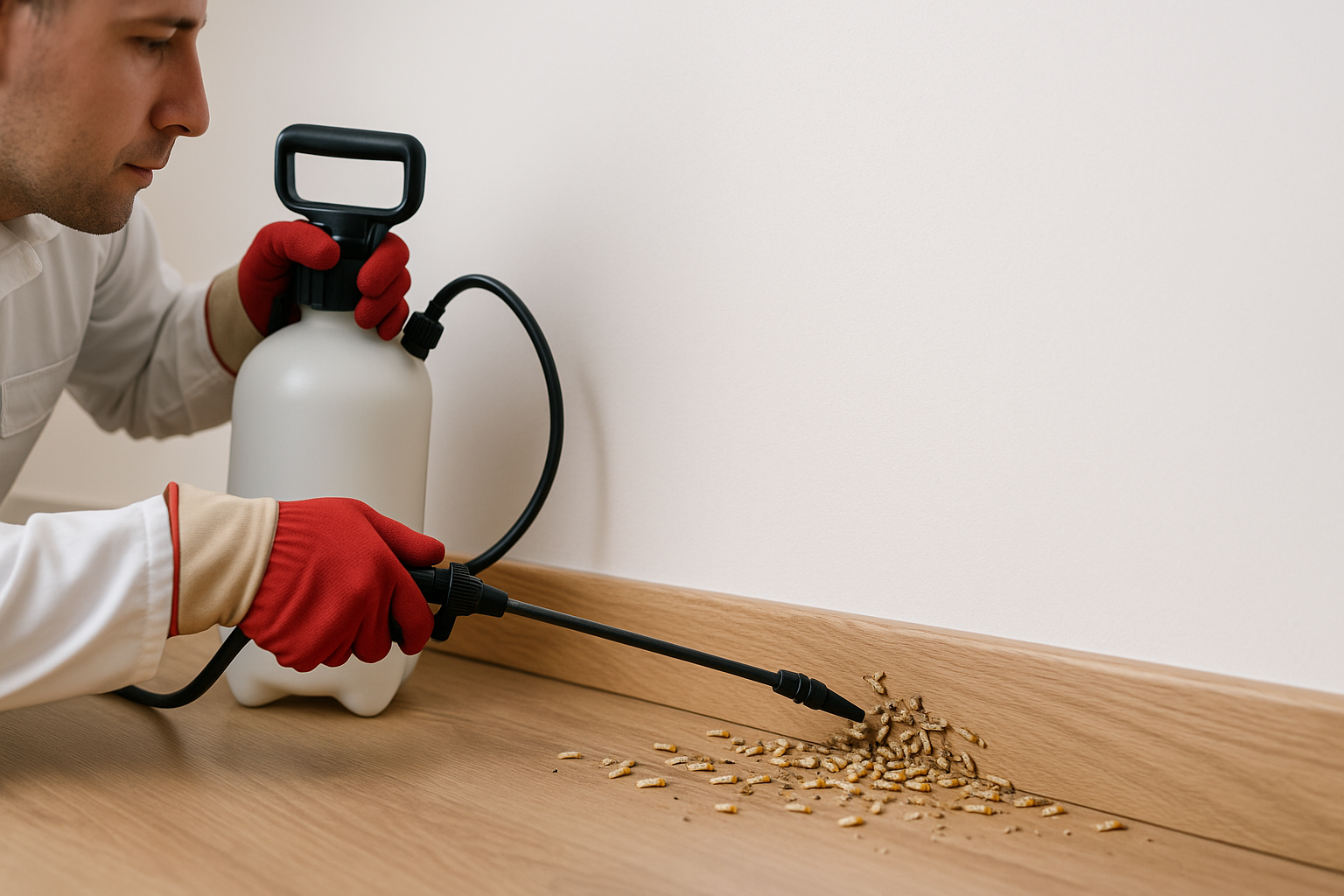Table of Contents
What Is Dubai Municipality Termite Inspection?
Dubai Municipality Termite Inspection is a mandatory process overseen by the Dubai Municipality’s Public Health & Pest Control Section. It involves a comprehensive check of properties, both residential and commercial, to identify termite infestation and prevent serious damage. This inspection is a critical step in property transactions and ongoing maintenance within Dubai’s real estate sector.
Termites are a common threat to buildings in Dubai’s hot and humid climate, where wooden structures and furniture are vulnerable. Dubai Municipality Termite Inspection helps ensure compliance with local regulations and protects property value and safety.
Why Is Dubai Municipality Termite Inspection Required?
The Dubai Municipality mandates termite inspections for several important reasons:
- Protect Public Health and Safety: Termite infestations can compromise the structural integrity of buildings, posing safety risks to occupants.
- Support Real Estate Transactions: Buyers and sellers rely on inspection reports to assess property condition during sales or lease agreements.
- Regulatory Compliance: Certain property approvals, ownership transfers, and construction permits require proof of termite inspection clearance.
- Property Maintenance: Preventive inspections help detect early signs of infestation, enabling timely treatment and avoiding costly damage.
Without completion of the Dubai Municipality Termite Inspection, property registrations or rentals may be delayed or rejected by relevant Dubai authorities.
Licensing Requirements for Termite Inspectors
Only licensed pest control professionals registered with Dubai Municipality can legally perform Dubai Municipality Termite Inspection. This licensing process involves:
- Proof of technical qualifications and professional training in pest control.
- Compliance with Dubai Municipality’s guidelines on inspection standards.
- Passing renewal requirements and maintaining good performance records.
Licensed inspectors must use approved detection techniques and submit inspection reports in formats recognized by Dubai Municipality to ensure validity and acceptance.
This licensing framework protects consumers by ensuring inspections are accurate, professional, and trustworthy.
How Property Agents and Lenders Use Termite Inspections
Real estate agents and property lenders in Dubai frequently require a valid Dubai Municipality Termite Inspection certificate as part of their due diligence. This inspection report:
- Confirms the property is free from structural termite damage prior to sale or lease.
- Satisfies lender requirements to secure mortgage or financing approvals.
- Helps agents advise clients on property condition and necessary treatments before listing.
Many property transactions cannot proceed without this inspection report, underlining its pivotal role in Dubai’s property market compliance and consumer protection framework.
Process of Conducting a Dubai Municipality Termite Inspection
Understanding the typical steps of the Dubai Municipality Termite Inspection helps property owners be prepared:
1. Booking an Appointment
Property owners book their termite inspection with a licensed pest control company. Selecting certified providers for your Dubai Municipality Termite Inspection, such as Saniex Dubai, ensures compliance with Dubai Municipality standards.
2. Physical Inspection
The inspector conducts a thorough examination of the property. This includes checking wooden structures, walls, crawl spaces, and furniture for signs of termite damage or activity.
3. Detection Methods
Inspections use visual checks and may employ specialized tools or bait stations to identify termite presence accurately.
4. Reporting
After inspection, the licensed professional prepares a detailed report indicating infestation status, recommendations, and required treatments if applicable. This report is submitted to Dubai Municipality for official approval.
Common Questions About the Inspection
How Often Should Inspections Be Done?
While inspection frequency depends on property type and location, annual termite inspections are recommended to maintain protection and meet Dubai Municipality guidelines.
Does Dubai Municipality Provide the Inspection?
Dubai Municipality oversees licensing and regulations but does not conduct inspections directly. Licensed private companies authorized by the municipality perform the inspections.
Can Termite Inspection Certificates Be Used Across Dubai?
Yes, a Dubai Municipality Termite Inspection certificate is valid universally within Dubai and required for transactions citywide, including Downtown Dubai, Dubai Marina, Arabian Ranches, and more.
Importance of Choosing Certified Inspectors
Working with certified providers for your Dubai Municipality Termite Inspection safeguards against inaccurate assessments and potential fraud. These inspectors adhere to Dubai Municipality protocols and report standards, ensuring your property meets local legal and safety requirements.
Providers like Saniex Dubai combine local expertise with Dubai Municipality licensing to deliver reliable termite inspections and treatments.
How to Prepare for Your Termite Inspection
- Clear Access: Ensure inspectors can access key areas such as basements, crawl spaces, and storage rooms for thorough examination.
- Inform Your Inspector: Provide any past pest control service history or concerns you may have noticed about wood damage or pest activity.
- Schedule When Convenient: Arrange inspection times that allow inspectors to conduct detailed assessments without interruption.
Good preparation not only speeds up your **Dubai Municipality Termite Inspection** but also improves detection accuracy, leading to better termite control outcomes.
Useful Resources for Termite Control in Dubai
Dubai property owners can rely on reputable sources for guidance and verification related to termite inspection services. The official Dubai Municipality Public Health Pest Control Section, offering key resources for Dubai Municipality Termite Inspection, provides regulatory updates and requirements for pest management, including termite control.
Engaging licensed companies and consulting Dubai Municipality’s resources ensures inspections are valid and compliant.
Conclusion and Call to Action
Dubai Municipality Termite Inspection is an indispensable component of responsible property ownership and real estate transactions in Dubai. By understanding licensing requirements, inspection processes, and the role of property agents and lenders, owners can safeguard their assets effectively.
For reliable termite inspection services compliant with Dubai Municipality standards, choose certified providers like Saniex Dubai. Act now to protect your property and ensure smooth real estate dealings.
Comprehensive Overview of Dubai Municipality Termite Inspection
As Dubai’s urban landscape continuously expands, maintaining the structural integrity and hygiene of residential and commercial buildings has become a critical priority. One of the essential services that uphold this standard is Dubai Municipality Termite Inspection. This inspection plays a pivotal role in detecting and mitigating termite infestations early to protect properties from costly damage and health risks.
Termites, often called “silent destroyers,” are notorious for their ability to compromise the wood framework and other cellulose-based materials used extensively in Dubai’s construction sector. Given the city’s climate conditions—characterized by high humidity and warm temperatures—termites find an ideal habitat, especially in buildings with wooden elements or underground structures. Dubai Municipality enforces rigorous inspection protocols to ensure that termite activity is identified and controlled promptly, aligning with the stringent building and health regulations managed by Dubai Health & Safety and Dubai Municipality.
Understanding the Importance of Dubai Municipality Termite Inspection
The goal of a Dubai Municipality Termite Inspection extends beyond simply spotting termites. It aims to ensure overall pest management, public health safety, and the longevity of buildings. Some key factors highlighting the importance of this inspection include:
- Early Detection and Prevention: Since termite infestations often remain undetected until significant structural damage has occurred, municipal inspections identify early signs such as mud tubes, damaged wood, and hollow-sounding lumber to prevent extensive repairs.
- Compliance with Local Regulations: Dubai Municipality mandates pest control measures as part of building safety and hygiene standards, especially in community developments like Arabian Ranches, Business Bay, and Downtown Dubai. Passing these inspections is critical for property owners to comply with Dubai’s regulatory framework.
- Protection of Property Value: Termite infestation, if unchecked, drastically diminishes property value. The Municipality’s inspection ensures prospective buyers and investors receive a guarantee of building safety and pest-free conditions.
- Health and Safety Considerations: Beyond property damage, termite presence can facilitate secondary issues such as fungal growth or bacterial contamination, which pose health risks to occupants.
Key Components of Dubai Municipality Termite Inspection
A typical Dubai Municipality Termite Inspection is thorough and systematic, encompassing multiple aspects designed to leave no stone unturned. The inspection team, certified by Dubai Municipality and adhering to Dubai Municipality’s health and safety guidelines, conducts assessments that include:
- Visual Examination: Inspectors conduct a meticulous examination of wooden structures, furniture, walls, ceilings, and underground infrastructures such as sewage lines, sewage manholes, and subfloor areas. Particular focus is given to areas frequently exposed to moisture where termites thrive.
- Moisture Assessment: Since moisture attracts termite colonies, specialized moisture meters may be used to detect damp areas within walls or foundations.
- Termite Bait Stations and Monitoring: Some inspections involve deploying bait stations approved by Dubai Municipality that attract termites to monitor their activity over time.
- Use of Detection Tools: Advanced tools like infrared cameras and acoustic emission devices can be employed to detect termite movement inside walls or beams without invasive procedures.
Following the inspection, a detailed report is provided, outlining the findings, potential risk areas, and recommended treatment or preventive measures specified under Dubai Municipality’s pest control guidelines.
Dubai Municipality Inspection and Control Programs
Dubai Municipality’s approach to termite control is not limited to isolated inspections; it forms part of a broader integrated pest management strategy that encompasses:
- Regular Scheduled Inspections: Buildings in Dubai Marina, Nad Al Sheba, and Medos, especially older structures or those near landscaped areas, are encouraged to undergo periodic termite inspections to ensure ongoing protection.
- Approved Treatment Methods: In cases where termite presence is confirmed, the Municipality mandates the use of effective and environmentally safe treatments. These include soil treatments, wood preservatives, and baiting systems compliant with the UAE’s environmental and health safety codes.
- Public Awareness and Training: Dubai Municipality also promotes awareness campaigns and training sessions for property owners, facility managers, and pest control operators to understand termite risks and preventive practices.
These programs are designed to dovetail with other Dubai-specific regulations such as the Dubai Fire & Life Safety Code, ensuring termite treatment does not pose hazard to fire safety systems installed in buildings.
The Role of Licensed Pest Control Operators in Dubai
Dubai Municipality only permits licensed pest control operators to perform termite inspections and treatments. This licensing ensures that operators have the technical knowledge and use approved chemicals and techniques that align with Dubai’s health and environmental standards. Homeowners and facility managers should verify that any contractor they engage for termite services holds the appropriate Dubai Municipality certification.
Licensed operators maintain documentation that may be required for compliance audits or property transactions, providing proof of inspection and treatment history. This is especially important in Dubai’s highly regulated real estate market, including upscale communities such as Arabian Ranches and Business Bay.
Practical Tips for Property Owners Before and After Inspection
To maximize the effectiveness of Dubai Municipality Termite Inspection and ensure long-term protection, property owners in Dubai should consider the following tips:
- Before Inspection: Clear clutter and wood piles near the building perimeter, fix any water leaks or drainage issues that may create moisture accumulation, and prune plants that touch the building walls to reduce termite access routes.
- After Inspection: Promptly address areas identified as high risk. If treatment is required, coordinate with licensed operators to implement eco-friendly methods. Additionally, consider installing termite-resistant materials or barriers during renovations or new construction.
- Regular Maintenance: Schedule annual termite inspections, especially in older buildings, as part of routine property maintenance. Consistent vigilance helps detect problems before they escalate.
Conclusion
The Dubai Municipality Termite Inspection is a cornerstone of the city’s built environment management, ensuring that termite infestations do not undermine property safety, value, or public health. By complying with Dubai Municipality’s regulations and engaging licensed pest control professionals, property owners within Dubai localities—from Dubai Marina to Downtown Dubai—can safeguard their investments and support the city’s commitment to sustainable urban living.
Understanding these stringent inspection requirements and embracing recommended best practices will help Dubai continue to thrive as a safe, modern metropolis, free from the hidden threats posed by termites.





